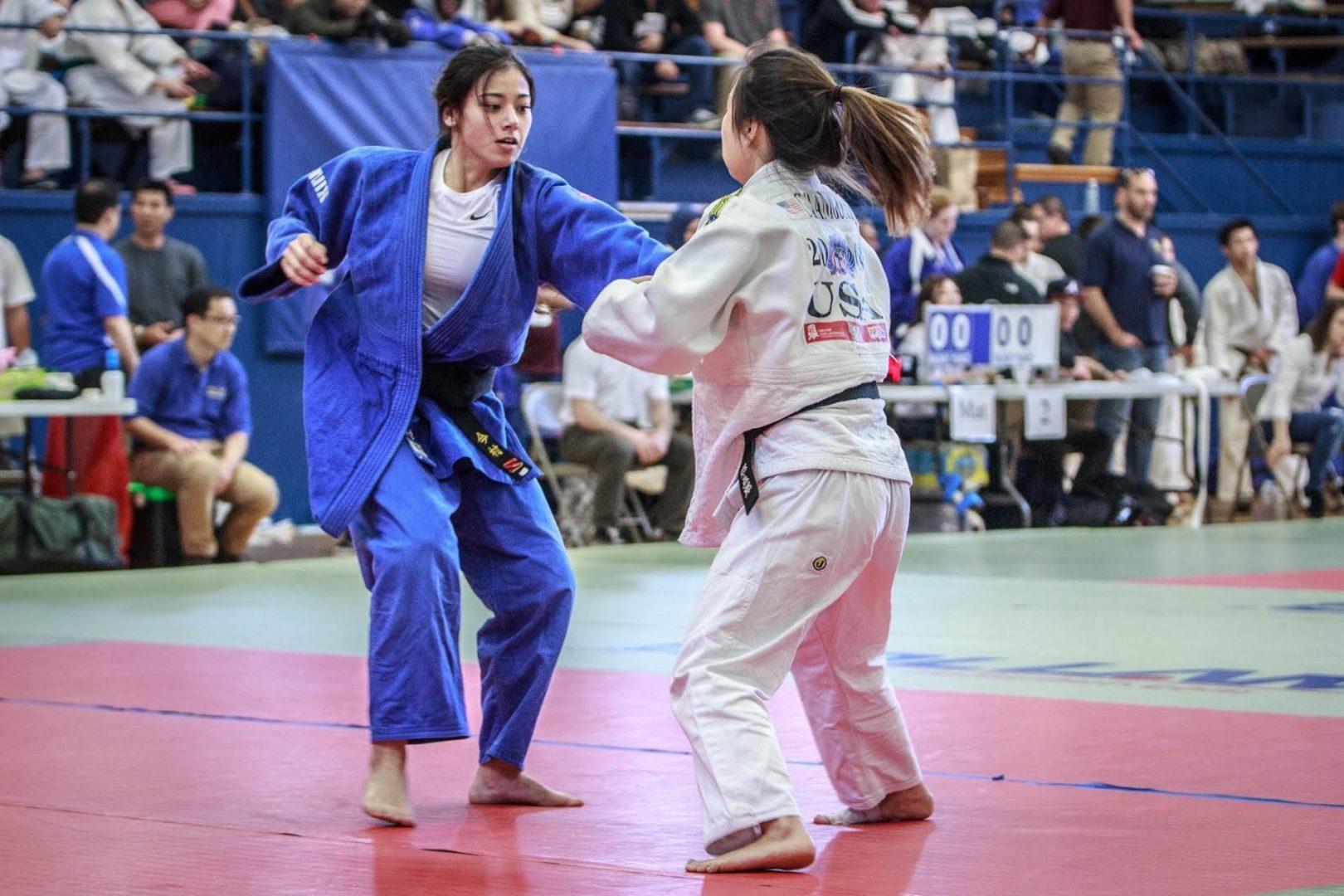Miranda Imamura’s grandfather, Haruo Imamura, started the Fresno State Judo Club in 1985 along with the Fresno Judo Club.
Nearly 30 years later, junior pre-nursing major Miranda revived the campus judo club as its lone competitor and will be representing Fresno State and the United States at the 2017 World University Games in Taipei, Taiwan.
Haruo is one of the highest-ranked blackbelts in the country and a well-respected judo competitor in Japan and the U.S. He came to Fresno from Japan, while on tour, when the Japan all-star collegiate team made a stop in Fresno. He has been teaching at Fresno State in the kinesiology department since 1980.
The club consisted of 20 members when Haruo started it.
As the coach of the Fresno State Judo Club, Haruo took the men’s team to two Collegiate National Championships, one in 1985 and one in 1988, teams that Miranda’s father and uncles — all blackbelts in the sport — competed on. He also led the women’s team to a co-championship with San Jose State in 1989.
After Miranda’s father and uncles graduated from Fresno State, the Fresno State Judo Club faded away until Miranda, herself, became a student at the university.
“You could say I was basically born into the sport,” Miranda said.
Miranda began doing judo when she was 4 years old. Of Haruo’s eight grandchildren, Miranda is the only one who has continued in the sport.
Miranda started the club so she could compete at the National Collegiate Judo Championships, It wasn’t until recently that she and another Fresno State Judo Club member, Chance Bruce, began to branch out and recruit more members.
Miranda and her coaches, Randy Imamura and Richard Imamura, her father and uncle, respectively, wanted to grow the club and expand the sport of judo on campus.
“We believe judo is an amazing sport, and we want to share that with as many people as possible,” she said. “Our club is kind of small now, but we welcome anyone and everyone. We want our club to continue growing.”
Even though Miranda started out as the Fresno State Judo Club’s only member, she never felt alone because of the support she had from her family, fellow judo competitors and coaches of the Fresno State Judo Club.
“There were times where I was the only one who would show up to practice, but that never stopped my grandpa, father and uncles from making me practice,” Miranda said.
Miranda is no stranger to championships, herself. In 2014 at Texas A&M, Miranda took second at the National Collegiate Judo Championship after losing in the finals by a penalty. In 2015 at her second NCJC, Miranda took third overall.
Disappointed in her placing, Miranda knew that at the 2016 championship, she would need to be faster, stronger, lighter and healthier.
Miranda trained for two hours a day, five days a week on her judo. She also followed a strength training regimen.
“In order to win, you need to be committed to judo,” Miranda said. “You have to push yourself to the absolute breaking point and then keep going.”
After cutting down from 138 pounds to 125, Miranda competed at the NCJC held at San Jose State University. After a tough match against a competitor from San Francisco City College who ended up getting disqualified, Miranda moved on to the semifinals to face a member of the San Jose State club, a very tough competitor.
The match lasted nearly the entire four minutes. Due to superior conditioning, Miranda was able to beat her opponent in the final minute to move on to the finals.
Prepared and determined to win the final match to be deemed the champion of the tournament, Miranda knew losing was not an option.
The match ended in 13 seconds as Miranda threw her opponent an “Ippon.” To get an Ippon, one must either throw their opponent on their back with power and impact, hold a pin for 20 seconds or submit their opponent in a choke or armbar until they tap.
“I was so relieved and happy. After two years, I finally won a National Collegiate title,” Miranda said. “It was easily the highlight of my judo career, so far.”
Winning the senior division at the NCJC earned Miranda a spot on the World University Team to represent the U.S. in Taiwan.
“I am so excited to represent the USA in judo, and I am also excited to meet students from all around the world,” she said.
As a female in a male-dominated sport, Miranda feels honored to be not only a judo champion, but a positive role model for young girls to look up to.
“It feels amazing to be a female champion. A few months ago, I had a mom come up to me and tell me her daughter idolizes me,” Miranda said. “That was probably the best thing I have ever heard.”
One of the greatest things about judo to Miranda is that it does not matter if you’re male or female or big or small. Anybody can do it with proper technique and practice.
“Judo runs in my blood,” she said. “I want to continue my judo career for the rest of my life, whether it’s competing, coaching or teaching.”



